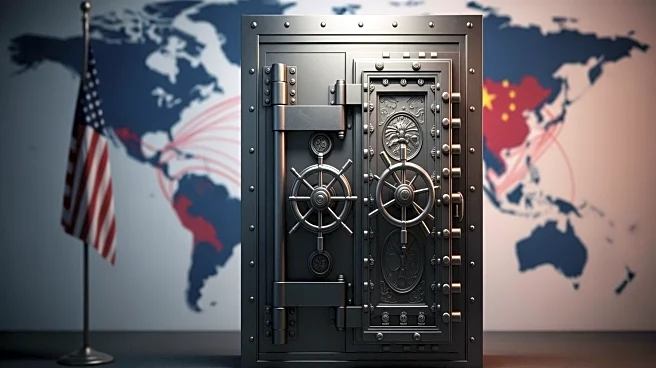What's Happening?
President Trump has announced a 100% tariff on all Chinese imports, escalating the ongoing trade war between the United States and China. This decision follows China's restriction on the export of rare
earth minerals, which are crucial for American industries. The tariffs are set to begin on November 1, adding to the existing 30% tariffs on Chinese goods. The trade conflict has already led China to cease purchasing American soybeans, opting instead for suppliers from Argentina and Brazil. The situation is expected to be a key topic during the upcoming meeting between President Trump and Chinese President Xi Jinping at the Asia-Pacific Economic Cooperation in Seoul, South Korea.
Why It's Important?
The imposition of tariffs by President Trump is significant as it affects various sectors of the U.S. economy, particularly agriculture and manufacturing. The restriction on rare earth minerals by China poses a threat to industries reliant on these materials, potentially leading to increased production costs and supply chain disruptions. The agricultural sector, especially soybean farmers, faces challenges due to China's shift to alternative suppliers, which could result in financial losses and impact rural economies. The broader economic implications include potential inflationary pressures and changes in trade dynamics, influencing global economic stability.
What's Next?
The upcoming meeting between President Trump and President Xi Jinping may offer a platform for negotiations to ease tensions. However, if no agreement is reached, the trade war could intensify, leading to further retaliatory measures from both sides. Stakeholders, including U.S. businesses and farmers, will be closely monitoring developments, as the tariffs could lead to increased costs and reduced competitiveness in international markets. The situation may also prompt discussions within the U.S. government regarding alternative strategies to address trade imbalances and protect domestic industries.










